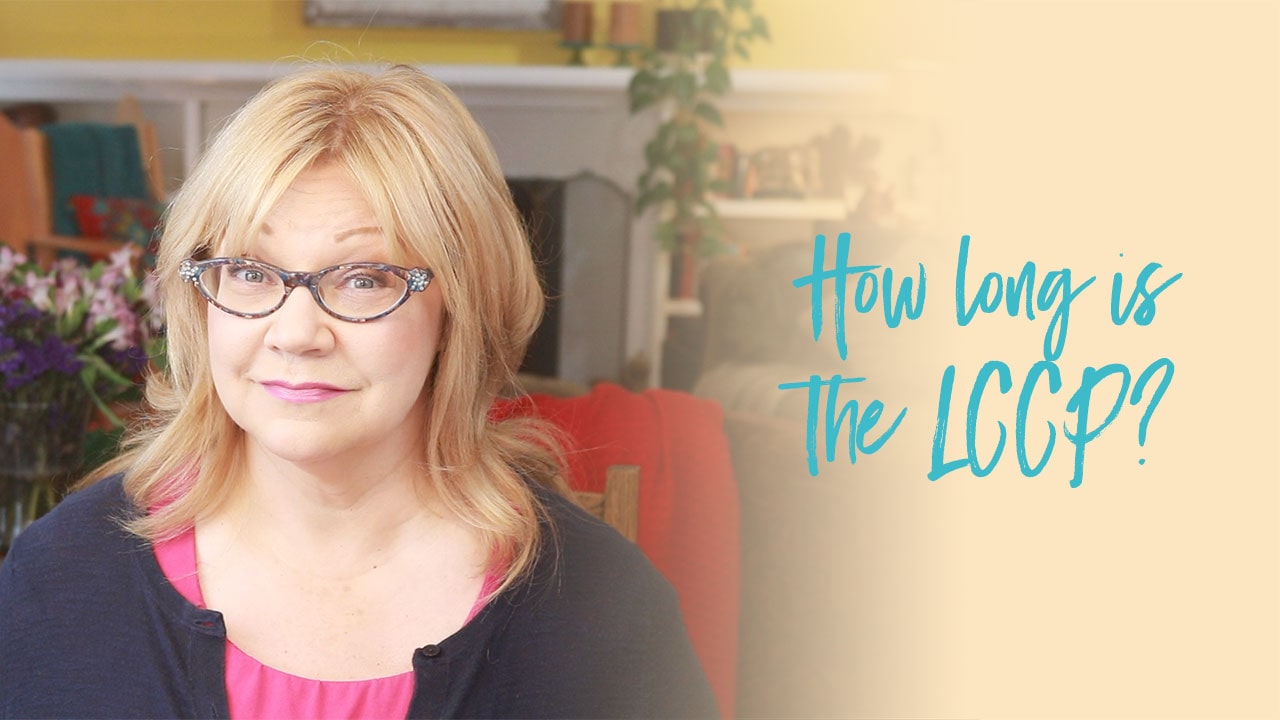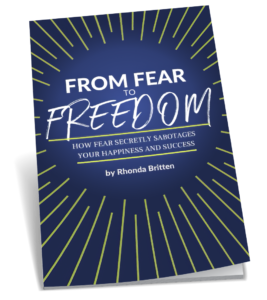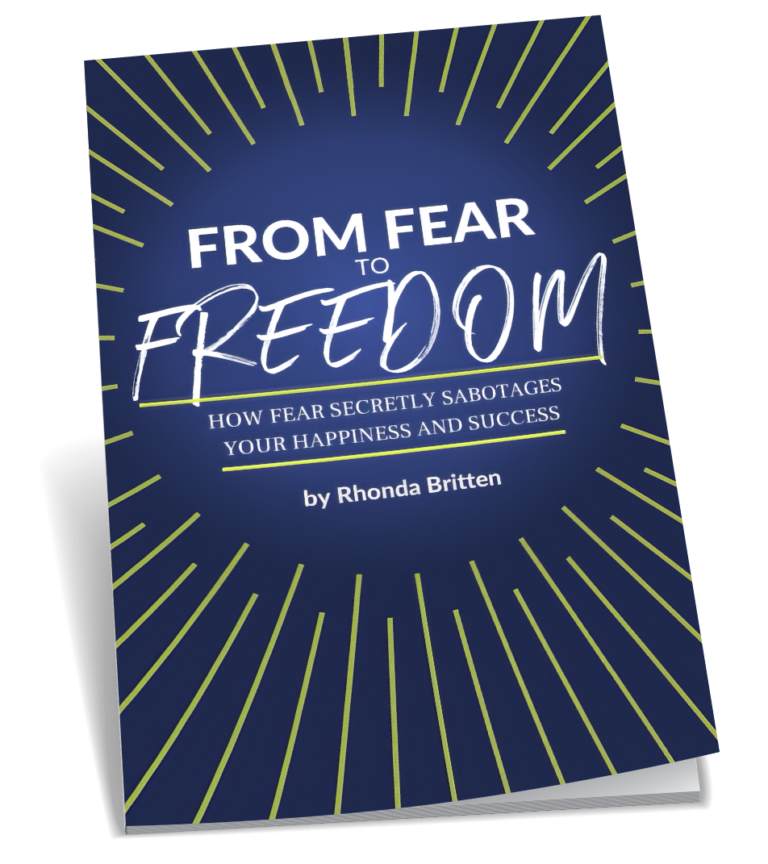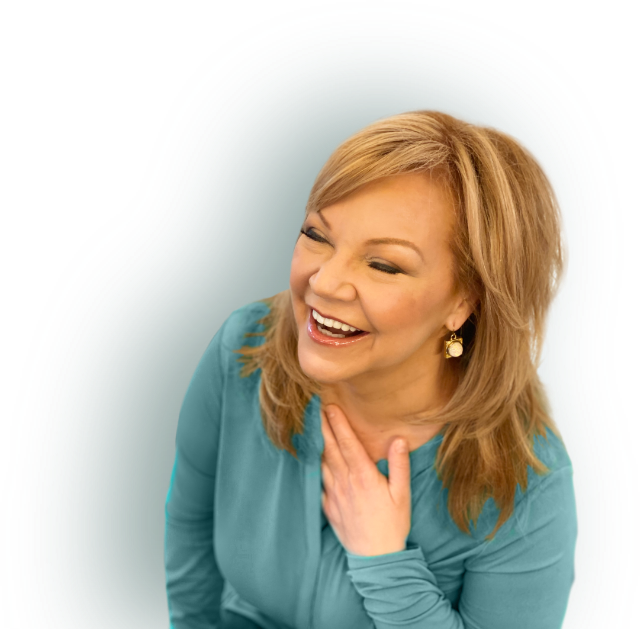As a Life Coach of 25+ years, a lot of people ask me, “How long does it take to become a certified Life Coach?” I wish I could give a straightforward answer!
The amount of time required to obtain a life coaching certification differs from program to program. At the Fearless Living Institute, our Life Coach Certification Program (LCCP) takes nine months. That time frame does not include our program’s prerequisite—Fearless Living Training Program—which helps prepare you to become a Life Coach.
Depending on what kind of certification route you choose, you can expect to spend anywhere from 40 hours to 300+ hours completing the coursework, including study sessions with clients, mentoring, and obtaining certification. Most coaching training sessions span 6-12 months.
I always say that everyone has their own coaching journey, so it's hard to tell how long before you can become a professional Life Coach. How quickly you learn the necessary coaching skills also depends on your own personal development.

That said, there are some typical stages in the process of becoming a Life Coach that most people go through. I'm going to break them down for you below.
What Is Life Coaching Certification?
First, let's clarify some terminology. If you're new to coaching, this will help you find your way around more quickly.
The coaching industry is still more or less unregulated. This means that anyone can call themselves a "Life Coach," regardless of whether or not they completed any training or have the necessary coaching experience.
That's where coaching certification can set you apart. Becoming a "certified Life Coach" is akin to having a license from an educational institution that vows for your coaching skills. One such institution is the Fearless Living Institute, where we've certified more than 500 Coaches after giving them appropriate training and testing.
There are two more terms you might want to know, which often get confused for coaching certification:
- Credentialing. This is confirmation of your coaching competencies. For instance, when you pass the LCCP testing, you will earn the credential of Certified Fearless Living Coach. You can also apply to a reputable coaching association to award you additional credentials.
- Accreditation. This term applies to specific coaching associations or organizations. When a course or program is accredited by an institution (e.g. The International Coach Federation, International Association of Coaching, or Association of Coaching to name a few in the US), this acts as a "stamp of approval" that the content and methodology of the course meets their requirements.
Being accredited by an outside association or organization is not required to be a successful and certified Life Coach. Consider it as an option that may or may not support your goals or reasons to become a certified Life Coach. Many of the most successful coach certification programs are not part of any association, but I do want you to know what each means, so you are educated on your options.
Now that we've covered the basics, let me take you on a tour of what the process of becoming a certified Life Coach may look like.
1. Picking a Life Coach Certification Program
Duration: Up to you.
The coach certification program that will suit you best depends on a lot of factors.
But people too often get caught choosing their program based on what kind of Life Coach they want to be (i.e., what niche they want to be in.) In other words: Do you want to be a health Coach, a relationship Coach, or a business Coach?
Usually, programs that train niche Coaches rely heavily on providing content to their students about their specific niche but do not provide much training on coaching skills.
One example is health coaching. A well-known program that focuses on training health Coaches provides compelling niche content, yet during their certification program, their students never coach actual clients.
No matter what type of Coach you want to become, life coaching skills give you a leg up and help you become a better overall Coach. That’s because, when it really comes down to it, all problems are really life problems. It doesn’t matter if you're coaching someone about career decisions, business goals, relationships, etc. Life coaching skills are an invaluable asset.
By the way, if you're still unsure what life coaching is about and what a Coach does, check out my article: What Does a Life Coach Do Exactly?
The kind of certification program you choose may also depend on how you envision the practicalities of your work as a Coach. Are you planning to have your own coaching business or work for an organization, such as a wellness center? Do you want coaching to be your full-time gig, or do you prefer to only do it part-time, along with another job? Or are you planning to incorporate coaching into your current position at work? Right now, coaching skills are one of the top requested skills for hiring.
When choosing your coach training program, bear in mind that you often need a prerequisite to enter. That's the case with LCCP. Before you enroll in our coaching certification program, we ask you to complete the Fearless Living Training Program.
That's how we know who's ready for and serious about professional coaching before we invest in one-on-one mentoring. By the way: we offer 18 one-on-one mentoring sessions—the most in the coaching industry by far!
2. Completing Life Coach Training
Duration: Nine months at Life Coach Certification Program (LCCP).
Once you enroll in a life coaching program, it typically takes you between 6-12 months to complete it. Some online training programs are flexible and allow you to complete the coursework in your own time. Others have live training sessions at specific times.
Over this time, you will hopefully be working on your core coaching skills and learning about the methodology and tools that will empower you to become your best coaching self. Most of the coaching associations agree that every certification program should include these core coaching competencies:
- Meeting ethical guidelines and professional standards
- Establishing the coaching agreement
- Establishing trust and intimacy with the client
- Coaching presence
- Active listening
- Powerful questioning
- Direct communication
- Creating awareness
- Designing actions
- Planning and goal setting
- Managing progress and accountability.
As you probably noticed, a lot of these skills are connected to effective communication and establishing a client relationship.
At LCCP, we make sure you acquire those competencies by ensuring you spend sufficient hours coaching real clients. We support you through this process by providing coaching tools, a hybrid learning environment (a mix of in-person and online training), and one-on-one time with a Mentor Coach.
This brings us to another step of the coaching journey.
3. Study Coaching Sessions and Mentoring
Duration: Minimum 75 hours at LCCP.
Towards the end of your training program as a Coach, you'll need to start translating theory into practice. This means developing hands-on coaching skills by coaching real people during supervised coaching sessions.
At LCCP, we believe that mentoring is crucial throughout that time. Many Life Coach training programs offer peer group mentoring, so you can talk through your experiences and learnings as a group. But this doesn’t compare with the value of having one-on-one sessions with your Mentor Coach!
From my experience, some questions and issues always remain unanswered in group mentoring sessions. There’s simply not enough time to address everyone’s concerns! That’s why one-on-ones with your mentor can help you progress so much faster as a Coach.
This personalized approach is one of the things I’m most proud of about LCCP.
Through your coaching journey at LCCP, you're going to complete a minimum of 75 client hours (we’ll support you to find the clients) and a minimum of 18 sessions with a Mentor, so you can ask them questions, get specific feedback, and solidify your coaching experience. That's more than you'll find anywhere else!
Real-life work with clients is crucial because it shows you what it really takes to be a Coach. One of the first things you'll learn is that people don't change because they understand something intellectually. They change when they feel something.
That’s why coaching programs that rely on content alone do not actually give you the coaching skills needed to know how to shift someone from a way of being that’s keeping them stagnant to another that allows them to flourish and thrive.
For example, someone might rationally know that they “should” quit beating themselves up because it lowers their self-confidence and keeps them stuck. But for most people, that’s not enough motivation. They’ll only decide to stop once they feel the negative effects it has on their life. For example, they notice they are unable to speak up in a meeting or they find they keep staying at a job they hate.
This ah-ha is just the first step towards giving your future clients the confidence and skill to turn their negative self-talk into powerful, positive language; language that gives them the courage to take the risks necessary to lead them to live the life their soul intended™.
Let’s face it: most people know what they want to change but don’t know how to do it. Coach training that relies on content is basically only giving people more information. For me, that’s never worked. Most times, having more information only made me feel worse since I then had more proof that I should change.
Your client needs to be guided on how to tap into the feelings that’ll inspire them to change. As a Life Coach, opening the door for that experience is a part of your job—and it’s also a great honor!
4. Achieving Your Life Coaching Certification Credential

Duration: Usually 1-2 weeks, but it depends on the program.
When you’ve finished your training and completed enough study coaching hours, you're ready to take your certification exam!
After passing it, you'll be able to name yourself a "certified Life Coach"—which certainly gives you added credibility in the coaching world.
Some Coaches say you don't need formal training to be a professional Life Coach. From my experience, those are usually the people who shouldn't be coaching (... at least not yet.)
They might have read a ton of books and have their theory nailed down to a tee, but they often lack those hands-on coaching skills that you can only develop through sessions supervised by your Mentor Coach. These include communication skills, such as active listening, asking good questions, and helping the client translate their desires into goals and actions. These skills are impossible to learn from books alone.
When you complete the training at LCCP, and pass the certification exam, you'll be awarded the title of a Certified Fearless Living Coach. This means you're prepared to go out and either start your own coaching business, offer coaching at an organization, incorporate it into your current position, or apply the skills to your personal life.
But what if you're still itching to learn more about continuing education for Life Coaches? Well, there's plenty for you to explore.
5. Additional Credentialing as a Life Coach
Duration: 20-200+ hours at LCCP, plus client-coaching hours.
If you're interested in further professional development as a Coach, there are many possible routes to take.
For one thing, you can work to become acknowledged by an independent organization, such as the International Coaching Federation or Association of Coaching.
Another path is to continue training at your "mother institution," deepening your understanding of the method and refining your coaching practice. At LCCP, we offer two paths of training for Advanced and Master Coach credentials. And if you have your eye on becoming a Mentor inside the LCCP, there’s training for that as well.
I also get asked all the time, “Rhonda, how do I teach or train the work of Fearless Living?” If you want to be “in front of the room” as a teacher, trainer or speaker inside the LCCP, you’ll learn how to give a 90-minute talk. If you want to go further, we offer training to become a Certified Fearless Trainer.
Are You Ready to Begin Your Life Coaching Journey?

The more advanced you are in your personal growth, the better Coach you will be.
That's why the most successful Life Coaches are those who are devoted to their personal development. The more self-awareness and emotional intelligence you have, the more you’re able to support your coaching clients.
Because the more you stop judging, blaming, or labeling yourself, the more you’ll offer that same gift to your clients. Instead, you become increasingly curious and ask better questions while having the skills to move someone from their present state to a future desired state of being. Your own growth supports the integration of your coaching competencies. As psychologist John Amodeo put it:
“The greatest gift we can give another person is the gift of our own personal growth. The more we know ourselves and develop the courage and skills to communicate our inner experience, the more that trust and love can flourish.”
At the Fearless Living Institute, we offer you a complete path that supports your personal and professional development:
- The prerequisite: Fearless Living Training Program
- Our flagship coaching program: Life Coach Certification Program
And if you're still not sure if coaching is for you, take our 2-minute quiz and find out.
I look forward to seeing you in class!
As a Life Coach of 25+ years, a lot of people ask me, “How long does it take to become a certified Life Coach?” I wish I could give a straightforward answer!
The amount of time required to obtain a life coaching certification differs from program to program. At the Fearless Living Institute, our Life Coach Certification Program (LCCP) takes nine months. That time frame does not include our program’s prerequisite—Fearless Living Training Program—which helps prepare you to become a Life Coach.
Depending on what kind of certification route you choose, you can expect to spend anywhere from 40 hours to 300+ hours completing the coursework, including study sessions with clients, mentoring, and obtaining certification. Most coaching training sessions span 6-12 months.
I always say that everyone has their own coaching journey, so it's hard to tell how long before you can become a professional Life Coach. How quickly you learn the necessary coaching skills also depends on your own personal development.

That said, there are some typical stages in the process of becoming a Life Coach that most people go through. I'm going to break them down for you below.
What Is Life Coaching Certification?
First, let's clarify some terminology. If you're new to coaching, this will help you find your way around more quickly.
The coaching industry is still more or less unregulated. This means that anyone can call themselves a "Life Coach," regardless of whether or not they completed any training or have the necessary coaching experience.
That's where coaching certification can set you apart. Becoming a "certified Life Coach" is akin to having a license from an educational institution that vows for your coaching skills. One such institution is the Fearless Living Institute, where we've certified more than 500 Coaches after giving them appropriate training and testing.
There are two more terms you might want to know, which often get confused for coaching certification:
- Credentialing. This is confirmation of your coaching competencies. For instance, when you pass the LCCP testing, you will earn the credential of Certified Fearless Living Coach. You can also apply to a reputable coaching association to award you additional credentials.
- Accreditation. This term applies to specific coaching associations or organizations. When a course or program is accredited by an institution (e.g. The International Coach Federation, International Association of Coaching, or Association of Coaching to name a few in the US), this acts as a "stamp of approval" that the content and methodology of the course meets their requirements.
Being accredited by an outside association or organization is not required to be a successful and certified Life Coach. Consider it as an option that may or may not support your goals or reasons to become a certified Life Coach. Many of the most successful coach certification programs are not part of any association, but I do want you to know what each means, so you are educated on your options.
Now that we've covered the basics, let me take you on a tour of what the process of becoming a certified Life Coach may look like.
1. Picking a Life Coach Certification Program
Duration: Up to you.
The coach certification program that will suit you best depends on a lot of factors.
But people too often get caught choosing their program based on what kind of Life Coach they want to be (i.e., what niche they want to be in.) In other words: Do you want to be a health Coach, a relationship Coach, or a business Coach?
Usually, programs that train niche Coaches rely heavily on providing content to their students about their specific niche but do not provide much training on coaching skills.
One example is health coaching. A well-known program that focuses on training health Coaches provides compelling niche content, yet during their certification program, their students never coach actual clients.
No matter what type of Coach you want to become, life coaching skills give you a leg up and help you become a better overall Coach. That’s because, when it really comes down to it, all problems are really life problems. It doesn’t matter if you're coaching someone about career decisions, business goals, relationships, etc. Life coaching skills are an invaluable asset.
By the way, if you're still unsure what life coaching is about and what a Coach does, check out my article: What Does a Life Coach Do Exactly?
The kind of certification program you choose may also depend on how you envision the practicalities of your work as a Coach. Are you planning to have your own coaching business or work for an organization, such as a wellness center? Do you want coaching to be your full-time gig, or do you prefer to only do it part-time, along with another job? Or are you planning to incorporate coaching into your current position at work? Right now, coaching skills are one of the top requested skills for hiring.
When choosing your coach training program, bear in mind that you often need a prerequisite to enter. That's the case with LCCP. Before you enroll in our coaching certification program, we ask you to complete the Fearless Living Training Program.
That's how we know who's ready for and serious about professional coaching before we invest in one-on-one mentoring. By the way: we offer 18 one-on-one mentoring sessions—the most in the coaching industry by far!
2. Completing Life Coach Training
Duration: Nine months at Life Coach Certification Program (LCCP).
Once you enroll in a life coaching program, it typically takes you between 6-12 months to complete it. Some online training programs are flexible and allow you to complete the coursework in your own time. Others have live training sessions at specific times.
Over this time, you will hopefully be working on your core coaching skills and learning about the methodology and tools that will empower you to become your best coaching self. Most of the coaching associations agree that every certification program should include these core coaching competencies:
- Meeting ethical guidelines and professional standards
- Establishing the coaching agreement
- Establishing trust and intimacy with the client
- Coaching presence
- Active listening
- Powerful questioning
- Direct communication
- Creating awareness
- Designing actions
- Planning and goal setting
- Managing progress and accountability.
As you probably noticed, a lot of these skills are connected to effective communication and establishing a client relationship.
At LCCP, we make sure you acquire those competencies by ensuring you spend sufficient hours coaching real clients. We support you through this process by providing coaching tools, a hybrid learning environment (a mix of in-person and online training), and one-on-one time with a Mentor Coach.
This brings us to another step of the coaching journey.
3. Study Coaching Sessions and Mentoring
Duration: Minimum 75 hours at LCCP.
Towards the end of your training program as a Coach, you'll need to start translating theory into practice. This means developing hands-on coaching skills by coaching real people during supervised coaching sessions.
At LCCP, we believe that mentoring is crucial throughout that time. Many Life Coach training programs offer peer group mentoring, so you can talk through your experiences and learnings as a group. But this doesn’t compare with the value of having one-on-one sessions with your Mentor Coach!
From my experience, some questions and issues always remain unanswered in group mentoring sessions. There’s simply not enough time to address everyone’s concerns! That’s why one-on-ones with your mentor can help you progress so much faster as a Coach.
This personalized approach is one of the things I’m most proud of about LCCP.
Through your coaching journey at LCCP, you're going to complete a minimum of 75 client hours (we’ll support you to find the clients) and a minimum of 18 sessions with a Mentor, so you can ask them questions, get specific feedback, and solidify your coaching experience. That's more than you'll find anywhere else!
Real-life work with clients is crucial because it shows you what it really takes to be a Coach. One of the first things you'll learn is that people don't change because they understand something intellectually. They change when they feel something.
That’s why coaching programs that rely on content alone do not actually give you the coaching skills needed to know how to shift someone from a way of being that’s keeping them stagnant to another that allows them to flourish and thrive.
For example, someone might rationally know that they “should” quit beating themselves up because it lowers their self-confidence and keeps them stuck. But for most people, that’s not enough motivation. They’ll only decide to stop once they feel the negative effects it has on their life. For example, they notice they are unable to speak up in a meeting or they find they keep staying at a job they hate.
This ah-ha is just the first step towards giving your future clients the confidence and skill to turn their negative self-talk into powerful, positive language; language that gives them the courage to take the risks necessary to lead them to live the life their soul intended™.
Let’s face it: most people know what they want to change but don’t know how to do it. Coach training that relies on content is basically only giving people more information. For me, that’s never worked. Most times, having more information only made me feel worse since I then had more proof that I should change.
Your client needs to be guided on how to tap into the feelings that’ll inspire them to change. As a Life Coach, opening the door for that experience is a part of your job—and it’s also a great honor!
4. Achieving Your Life Coaching Certification Credential

Duration: Usually 1-2 weeks, but it depends on the program.
When you’ve finished your training and completed enough study coaching hours, you're ready to take your certification exam!
After passing it, you'll be able to name yourself a "certified Life Coach"—which certainly gives you added credibility in the coaching world.
Some Coaches say you don't need formal training to be a professional Life Coach. From my experience, those are usually the people who shouldn't be coaching (... at least not yet.)
They might have read a ton of books and have their theory nailed down to a tee, but they often lack those hands-on coaching skills that you can only develop through sessions supervised by your Mentor Coach. These include communication skills, such as active listening, asking good questions, and helping the client translate their desires into goals and actions. These skills are impossible to learn from books alone.
When you complete the training at LCCP, and pass the certification exam, you'll be awarded the title of a Certified Fearless Living Coach. This means you're prepared to go out and either start your own coaching business, offer coaching at an organization, incorporate it into your current position, or apply the skills to your personal life.
But what if you're still itching to learn more about continuing education for Life Coaches? Well, there's plenty for you to explore.
5. Additional Credentialing as a Life Coach
Duration: 20-200+ hours at LCCP, plus client-coaching hours.
If you're interested in further professional development as a Coach, there are many possible routes to take.
For one thing, you can work to become acknowledged by an independent organization, such as the International Coaching Federation or Association of Coaching.
Another path is to continue training at your "mother institution," deepening your understanding of the method and refining your coaching practice. At LCCP, we offer two paths of training for Advanced and Master Coach credentials. And if you have your eye on becoming a Mentor inside the LCCP, there’s training for that as well.
I also get asked all the time, “Rhonda, how do I teach or train the work of Fearless Living?” If you want to be “in front of the room” as a teacher, trainer or speaker inside the LCCP, you’ll learn how to give a 90-minute talk. If you want to go further, we offer training to become a Certified Fearless Trainer.
Are You Ready to Begin Your Life Coaching Journey?

The more advanced you are in your personal growth, the better Coach you will be.
That's why the most successful Life Coaches are those who are devoted to their personal development. The more self-awareness and emotional intelligence you have, the more you’re able to support your coaching clients.
Because the more you stop judging, blaming, or labeling yourself, the more you’ll offer that same gift to your clients. Instead, you become increasingly curious and ask better questions while having the skills to move someone from their present state to a future desired state of being. Your own growth supports the integration of your coaching competencies. As psychologist John Amodeo put it:
“The greatest gift we can give another person is the gift of our own personal growth. The more we know ourselves and develop the courage and skills to communicate our inner experience, the more that trust and love can flourish.”
At the Fearless Living Institute, we offer you a complete path that supports your personal and professional development:
- The prerequisite: Fearless Living Training Program
- Our flagship coaching program: Life Coach Certification Program
And if you're still not sure if coaching is for you, take our 2-minute quiz and find out.
I look forward to seeing you in class!







